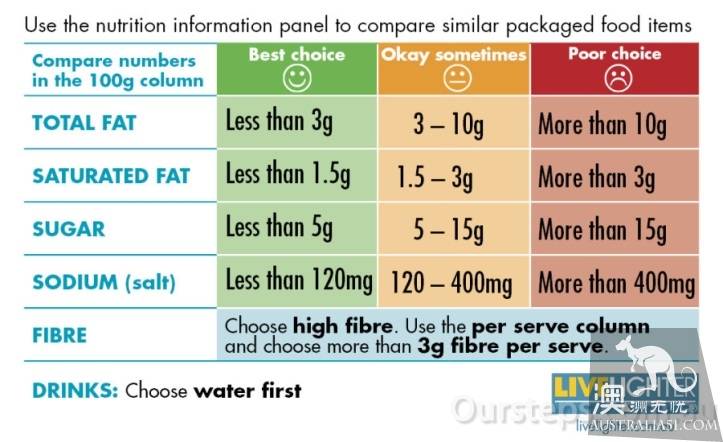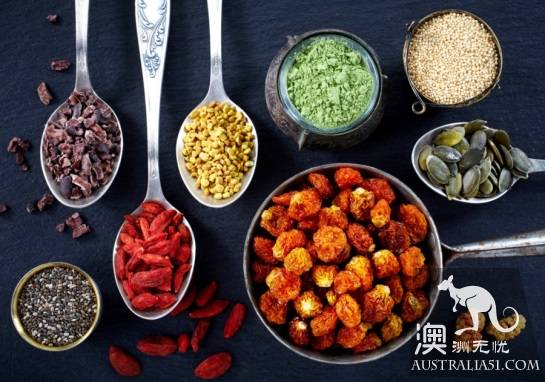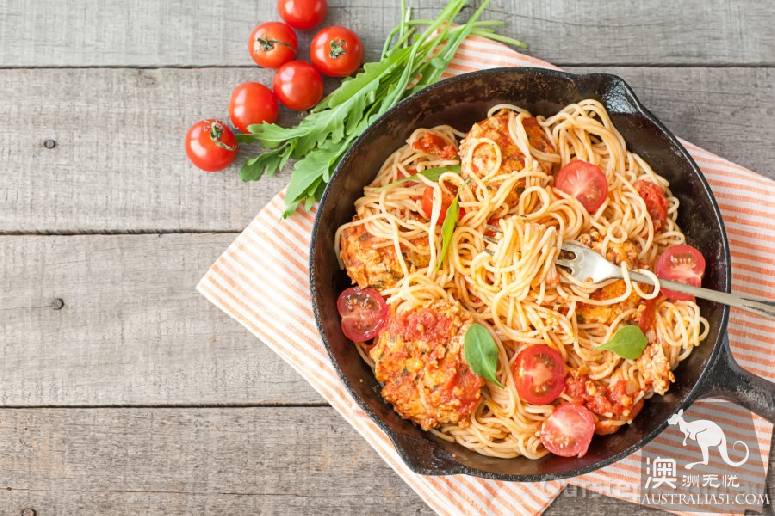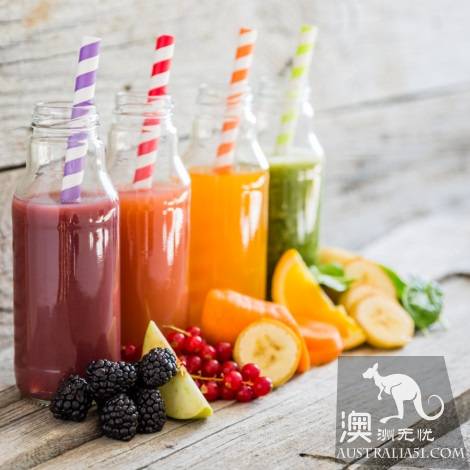Bad news-most of these food labels are completely misleading and lack nutritional significance. Yes, those so-called "sugar-free" energy bars may still be rich in sugar, cunning.
This leads us to think that these confused nutrients do nothing to help Australia's obesity problem.
"We know that many Australian adults are overweight or obese and are at high risk of developing cancer and other cardiovascular diseases." Dietitian Alison McAleese says.
"many of these tags do not have any specific guidelines from the goverment organization FSANZ on how to use them. Usually they use buzzwords and it is difficult to take measures to limit their use. "
Other terms, such as gluten-free, are governed by our food system, but manufacturers use it as a synonym for "health", which is not its original function.
"there's a problem. Consumers may think it sounds healthier, but that's not the case. This is exaggerated marketing, "McAleese said.
So, what's the best way to keep your eyes off the food label? First of all, ignore the food packaging front, pay attention to the packaging behind.
"there are a few things to remember," McAleese said. "the advice I often give is shopping outside the supermarket, where there are lots of foods that don't have such labels, which are healthier foods we need every day, and where you can't decipher the code. Just buy vegetables, Jianguo, milk, fruit, and so on. "
"if you're walking between shelves full of food labels, just look at the back of the package. The words on the positive side of the packaging are all manufacturers' marketing tricks and are useless to consumers. "

Here are 13 misleading food labels and their true meaning.
1. "baked (toasted)", "crisp (crunch)", "string (clusters)"-contains added fat and grease
"the three words have the same meaning, but they will be used in different foods."
"the real meaning is to add fat or fat, but these three words are better."
2. "give you energy (Gives you energy)." High energy (high in energy). "- High calories.
"the basic meaning of these words is that high-kilocoureted foods usually contain a lot of sugar."
"in English, we use" energy "to mean" energetic "or" energetic, "but we also use it to describe calories, so the words on food labels are confusing."
3. "naturally made (Made naturally)," Natural (natural) "- it's all based on your interpretation.
"it's not a word for health, but it can make food sound healthy, especially when manufacturers use green energy. In fact, the real meaning is no chemical synthesis or laboratory ingredients, but this does not mean that it is healthy food. "
At the same time, pay special attention to the brand name in the use of the word "natural" manufacturers. The nutrition information bar is more meaningful.
"some chips call themselves" natural chips, "and that's just because they're made of potatoes. That doesn't mean they're healthy food."

4. "Super Food (Superfoods)"-contains popular ingredients
If you see "super food", for example, chocolate bars, be careful. Although it may contain "super food", it does not deny its unhealthy ingredients.
"they're just fashion ingredients, and they're usually more expensive," McAleese said. "vegetables and fruits are always super foods, no matter what fruit or vegetables. It doesn't need to be written on the packaging. "
5. "real material, (Real ingredients)."-it doesn't say.
"the word is interesting and seems to be a recent buzzword. As a matter of fact, I didn't say anything at all. "
"it's probably just a marketing effort to say that a product is of high quality, but it's not about health."
6. "mellow (Creamy)."-it's all fat.

"you'll see it on macaroni and soup products, and we've recently looked at yogurt products and noticed that a lot of yogurt also has' creamy','" McAleese said. "basically, it means adding some kind of fat. It's usually cream or cream. "
7. "fresh (Fresh)"-non-frozen or canned
Although we often associate "fresh" with "healthy", "vegetables" and "hygienic", this is not the same thing as "fresh" printed on plastic food packaging.
"similarly, although it sounds healthy, it's just a description of the food that has not been frozen or canned, with exceptions," McAleese said. "it doesn't necessarily mean vegetables or health ingredients."
8. "No artificial pigment (no artificial colours)"-there is no synthetic ingredient, but it is possible to add pigments extracted from other foods or ingredients.
"if you go to a candy shelf, one in every two products says'no artificial pigments, 'but pigments can be obtained from a lot of non-artificial sources," McAleese said. "it doesn't mean food is rich in pigments, sugar and fat. In fact, it has nothing to do with health at once. "
9. "talk (Lite or Light)-can mean color, light taste, and possibly low calorie or low fat."
"if you specifically refer to fat, you need to follow the rules. "low-fat milk, for example, requires 25 percent less fat than full-fat milk," McAleese said. "but sometimes, 'light' also knows the taste or color."
"if you choose a product that contains the word" light ", you need to take a closer look at its use, check the nutrition information bar, and usually do not specify which side of the" light "term on the front of the package. The most classic example is olive oil, light olive oil or 100% oil, but the taste is not strong and has nothing to do with health. "
10. "No sugar (No added sugar)-No sugar, honey or syrup, but still can be high in sugar (juice, for example)"

Next time you see "No Sugar" on the dessert package, remember that.
"No added sugar is regulated by the FSANZ, meaning no added sugar, honey or syrup. But still a lot of foods that say 'five-added sugar' are actually extremely high in sugar, "McAleese said," because the product can be full of dried fruit or fructose. Juice can not be added sugar, but still high sugar. At the same time, those fresh-date nut bars are usually high in sugar. "
11. "High protein (Now with Protein,high in protein)"-foods that may be added as previous versions do not mean healthie
With the popularity of protein in recent days, it is easy to think that protein-added chips or chocolates are healthier.
"if you say 'high protein', you need to be 25% more than the original version, but sometimes it's just that, I've seen chocolate bars say 'protein added,'" McAleese said. "We have eaten too much protein. It's no use adding it, and it doesn't automatically make the food healthier. "
12. Organic (organic)-non-use of chemical pesticides, independent of nutritional composition
"Organic refers to the process of food growth and does not reflect the health of food at all."
"you can eat organic chips, which may be important for people who pay special attention to pesticides, but chips are still chips and will not be more nutritious."
13. Gluten-free (gluten free)-safety for gluten intolerance does not mean health
"this label is strictly regulated by FSANZ, but it is not a healthy food choice unless there are health reasons to avoid."